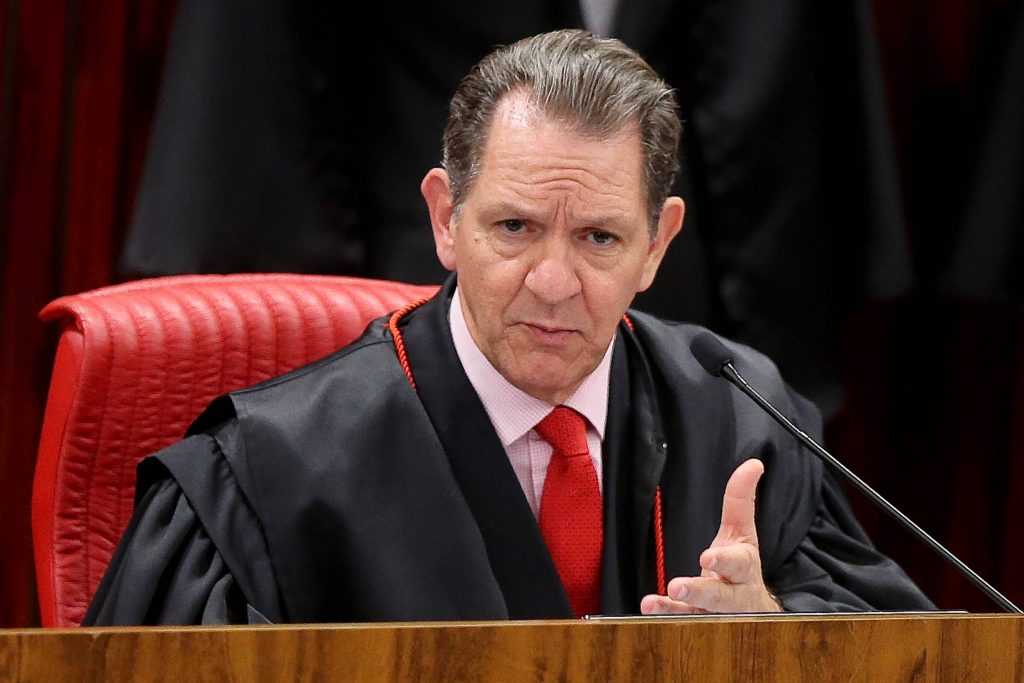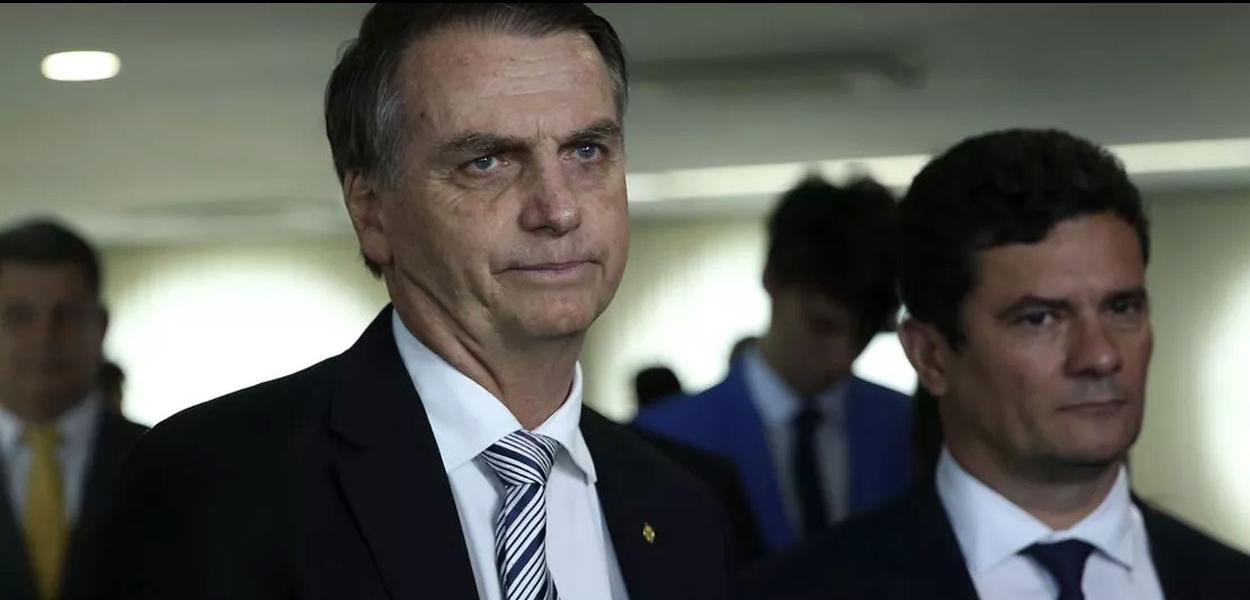RIO DE JANEIRO, BRAZIL – The Minister of Justice and Public Security, Sérgio Moro, one of those accused in the ever more incredible Vaza Jato scandal, has advised hacked officials that the messages hacked by the gang arrested by the Federal Police will be destroyed.
The president of the Superior Federal Court (STJ), João Otávio Noronha, said to Folha de S.Paulo on Thursday, July 25th, that the minister himself had provided this information by phone. This was confirmed to the report by Moro’s advisory team.

Just let it sink in for a moment: The main person accused by the Vaza Jato scandal, advises the responsible officials in Brazil to dispose of precisely THAT evidence that could endanger him.
Moro called Noronha, the presiding judge of the Superior Federal Court, to report that he had been on the list of targets of gang members arrested last Tuesday, July 23rd, by the Federal Police.
“I’ve received word from Minister Moro that I’ve been wiretapped. I have nothing to hide; I’m not worried about that,” said the magistrate. “The messages will be destroyed, and there’s no other way.”
“That’s what the minister told me and that’s what has to happen,” he added.
In a statement to the Senate on June 19th, Moro urged the Intercept Brasil website, which published the messages, to hand over the material to be examined.
“Take the material and hand it over to an authority, without prejudice to its publication.”
“This will allow us to check the entire content of this material, the context in which it has been included and, above all, whether this material is authentic or not. Because so far we have had no proof of its origin,” Moro said at the time.
In response, The Intercept’s Glenn Greenwald said in a Senate hearing that he would never deliver journalistic material to the police or courts because this is something that happens in authoritarian countries, tyrannies, but not in democracies.
Federal police suspect that Walter Delgatti Neto — one of the four detainees in Operation Spoofing and also called the “Araquara Hacker” — has allegedly been the source of the material published by The Intercept Brasil since June, including messages between Lava Jato task force officials in Curitiba.
In a deposition, this same Delgatti said that he had forwarded the messages to journalist Glenn Greenwald, founder of the website, anonymously, voluntarily and with no financial gain.
This alleged hacker’s procedure and testimony are an exact match with what The Intercept predicted in an article released on July 15th, where it anticipated that Federal Police planned to arrest and forge the confession of a “fake” Vaza Jato hacker.
When the first messages surfaced on June 9th, the website reported that it had obtained them from an anonymous source, who had requested confidentiality. The set includes private task force group messages in the Telegram App starting in 2015.

Leaked messages
The messages obtained by The Intercept and disclosed so far show that then-judge Moro had suggested a witness who would cooperate in the investigation of former president Luiz Inácio Lula da Silva to prosecutor Deltan Dallagnol, head of the Lava Jato task force in Curitiba.
According to the messages, the former judge further oriented Deltan to include evidence against a Lava Jato defendant in an accusation that had already been offered by the Federal Prosecutor’s Office (MPF), urging the prosecutor to alter the sequence of the operation’s stages and preempt at least one ruling.
Moro, in the messages, also positioned himself against investigating former president Fernando Henrique Cardoso.
Should it be established that Moro was involved with the Prosecution, his rulings could be
overturned, including the Lula lawsuit which is under consideration by the Federal Supreme Court.
Article 254 of the Code of Criminal Procedure states that “the judge shall pronounce himself or herself suspect, otherwise he or she may be recused by either party” if “he or she has advised either party.”
Furthermore, Article 564 states that sentences handed down by suspect judges may be overturned.
In the operation carried out on Tuesday, July 23rd, the Federal Police’s criminal forensics team copied data stored on cloud platforms on the internet by the arrested suspect, which suggest the accuracy of at least some of the depositions by Delgatti, one of the four detainees suspected of having hacked officials’ communications.
In this seized material, there could be conversations between Lava-Jato prosecutors such as those disclosed by The Intercept.
According to the investigation, the president of the STJ had his messages copied. According to Noronha, there’s no reason to check the messages. “It would be an intrusion, it makes no sense at all,” he said.
The presidents of the Chamber of Deputies and the Senate, Rodrigo Maia (DEM-RJ) and Davi Alcolumbre (DEM-AP), were also victims of hacking attacks.
The Minister of Justice called the targets on Thursday, July 25th, in an attempt to notify them.
Maia has already been alerted, but Alcolumbre could not be reached. According to his press advisors, the Senate president is attending a religious festival in Mazagão Velho, in the interior of the state of Amapá, with no phone reception.
The Federal Police reports that as many as a thousand people may be on the hackers’ target list. The attacks were successful in some cases, but not in others — which is currently under investigation.
Earlier, the Ministry of Justice announced that president Jair Bolsonaro had also been a victim to the attacks.

Moro should not have a list of hacked officials if the action is confidential
Moro’s direct involvement in the case of hacked officials is causing discomfort among members of the Federal Supreme Court.
Anonymously, one of the magistrates criticized the fact that Moro was calling officials listed as the target of hackers and now claiming to destroy the messages.
In addition, one Federal Supreme Court Justice told UOL that Moro was not supposed to be in possession of any information regarding a case which, so far, has been kept confidential.
“This is what he is doing, in addition to demoralizing the Federal Police and the judiciary, he may yet jeopardize the conduct of the case, because such actions may be challenged in the Supreme Court,” he said.
The justice claims that Moro misinterprets his duties with those of a “Federal Police delegate,” who leads the investigation, and that of a judge, “who is supposed to make this kind of decision.”
The STF justice further stated that an investigation involving privileged officials should be
addressed by the Superior Federal Court or by the Federal Supreme Court, and that Moro should withdraw from the case by reason of being a party.
To columnist Mônica Bergamo, another STF justice, Marco Aurélio Mello also stated that only the judiciary might decide whether the messages obtained will be destroyed.
Sought by the report, Moro’s advisory team announced he would not comment on the statements.

